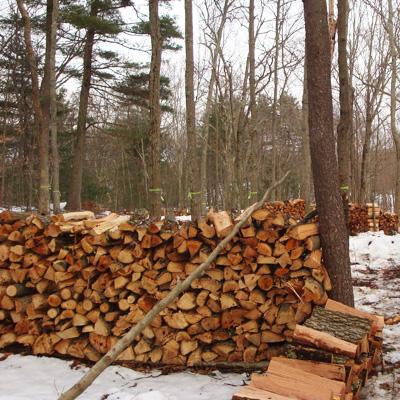Resolving a Critical Question in Predicting Woody Biomass Supply to the Northern Forest Industry: Estimating Risk Perception and Willingness to Harvest from Small Woodland Owners

Predicting timber supply is critical to the viability of the bioenergy industry. To better understand the knowledge, attitudes, risk perception, and willingness of woodland owners to harvest timber for bioenergy markets, NSRC researchers interviewed 32 private family woodland owners in Maine. Owners had previously harvested timber, never harvested timber, or had harvested timber for woody biomass markets.
Findings indicate that private woodland owners have little knowledge of biomass harvesting but desire to learn more. Attitudes toward biomass harvesting were mixed, with negative attitudes about nutrient removal, poor economics, and biomass as a poor end-use for wood products. Positive attitudes towards biomass pertained to fossil fuel replacement, a use for low-quality wood, and strengthening Maine’s forest economy. Some owners expressed a willingness to supply timber for biomass, but not all landowners who had harvested for bioenergy markets would do so again. Many landowners felt that biomass was not economically feasible and the risk of damaging forest ecosystems did not outweigh potential benefits in having a market for low-value wood. It did not matter to landowners where wood ended up, what it was used for (electricity vs. conversion into a mobile fuel source), or what was done with byproducts of wood burning. Landowners only hoped the wood went to the best possible end use.
These results provide an assessment of landowner awareness of timber harvesting options and insight about available timber supply for the bioenergy industry. Better outreach, information, and market conditions are important to facilitate biomass harvesting on private woodlands in the Northern Forest.
